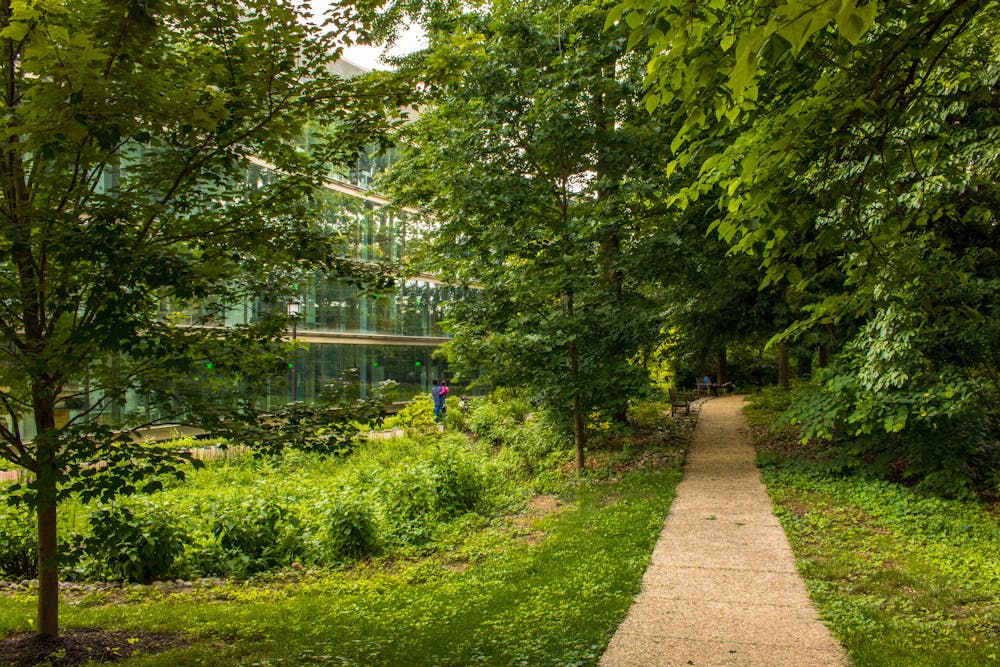“Biology is too mainstream.” This is a sentiment I often hear from many students, especially those on the premedical track. Oftentimes, it seems that some students will choose an entirely different major to differentiate themselves, even if they are not as interested in that subject.
This was a concern I certainly shared when entering Hopkins as a freshman. But after taking a couple courses in the Biology department, I realized that majoring in Molecular and Cellular Biology (MCB) would allow me to follow my true passion: learning about life’s complexity in a manner that was both in depth and covered much breadth.
Specifically, I desired to focus my undergraduate years on learning content that I believe would be relatively challenging to simply read on my own, in the sense that the complex biological concepts and techniques are not easy to learn on one’s own without a classroom environment. I also believed that this would allow me to gain exposure to a variety of subfields that I could choose to narrow in on through later endeavors and co-curricular activities such as lab research and science writing.
While I was content with my decision, it was not until I took the MCAT and became more independent in my research work that I realized the true value of the MCB major at Hopkins and why I believe it is one of the best majors to pursue for those passionate about learning how living systems work.
In the process of studying for the MCAT, I realized that I relied on many of the critical thinking and analysis skills I had gained through the core coursework of the MCB major. I had initially thought these skills would mostly be the focus of engineering majors, while Biology and more basic science majors would focus on memorization. But through classes such as Cell Biology, Biochemistry, Molecular Biology and Genetics, students are guided and taught to focus on content application, research design and problem-solving skills.
Associate Teaching Professor Katie Tifft, the lead instructor for the Cell Biology and Biochemistry courses, highlighted this in an email. Tifft stated that her focus and that of the Biology department at large has, indeed, been centered on instilling this mindset in students.
“I think is important to have certain knowledge (like definitions or facts) easily accessible in order to participate in real-time conversations about biology. This is analogous to learning a new language. Instead of approaching this as memorization, I recommend pursuing this goal by using the content in context which will be much more helpful than just a simple memorized tidbit,” Tifft wrote. “People working in the field of biology don’t spend time ‘memorizing’ anything, but certain aspects become memorized because they are used frequently and other information can be looked up when needed.”
It is clear to me that the Hopkins MCB major provides the perfect opportunity to learn content while focusing on its application. This is perhaps most evident in the research opportunities provided by the major and Hopkins overall. By working in a research lab in the Biology department, as well as in other lab groups, I am able to literally visualize the content we learn in the major on an everyday basis.
From running a simple gel or designing more complex protein purifications and reading dense research articles, I am consistently — sometimes directly and often subconsciously — relying on the class readings, lecture topics and group discussions I have engaged with through my biology courses.
Tifft supported this applicability.
“Students often have profound experiences in research labs which enable them to apply knowledge from class and observe the many facets of the research process and culture," Tifft wrote. "I think that interactions with other people, including peers, mentors [and] instructors, are extremely valuable and I highly recommend taking advantage of the many opportunities provided.”
Not only is the MCB major incredible for these research experiences, it also allows for students to have significant academic flexibility and peer engagement. While there are core courses, the elective space and overall size of the major lends itself to students often minoring or double majoring. Thus, the MCB major is again for those that are passionate about living systems and perhaps another field and hope to combine the two.
Tifft described the type of student who should consider a MCB major.
“The major is for anyone and everyone who finds biology interesting and wants to learn more! I think that the major you choose should be something you enjoy learning about and that your major doesn’t necessarily need to be aligned with or determine your future pursuits," Tifft wrote.
In my opinion, MCB at Hopkins offers a valuable and rewarding experience in critical thinking and expanding horizons for those who are interested in a wide range of life sciences. Whether students pursue health professions such as medicine and dentistry, graduate school or industry for research careers or even careers outside of science, technology, engineering and math, MCB provides a research-driven mindset, urging students to ask big, critical questions even if the path to answering them is unclear.
The major and department as a whole strive toward these objectives and lean away from what used to be, and perhaps still is, considered “traditional,” memorization-focused biology through many professors’ teaching styles.
If Tifft’s following description of why biology is beautiful resonates with you, consider studying in one of the nation’s largest Biology departments in terms of the number of research labs and full-time faculty.
“To me biology seems like an infinite, complex, and intriguing puzzle with many pieces and connections that are still a mystery," Tifft wrote. "The pursuit of knowledge in biology is not only interesting, but also important for many more practical applications including human health.”
Muhammad Abidi is junior studying Molecular and Cellular Biology from Onalaska, Wis. His column reflects on notions of productivity and personal development to navigate the journey toward self-actualization.





